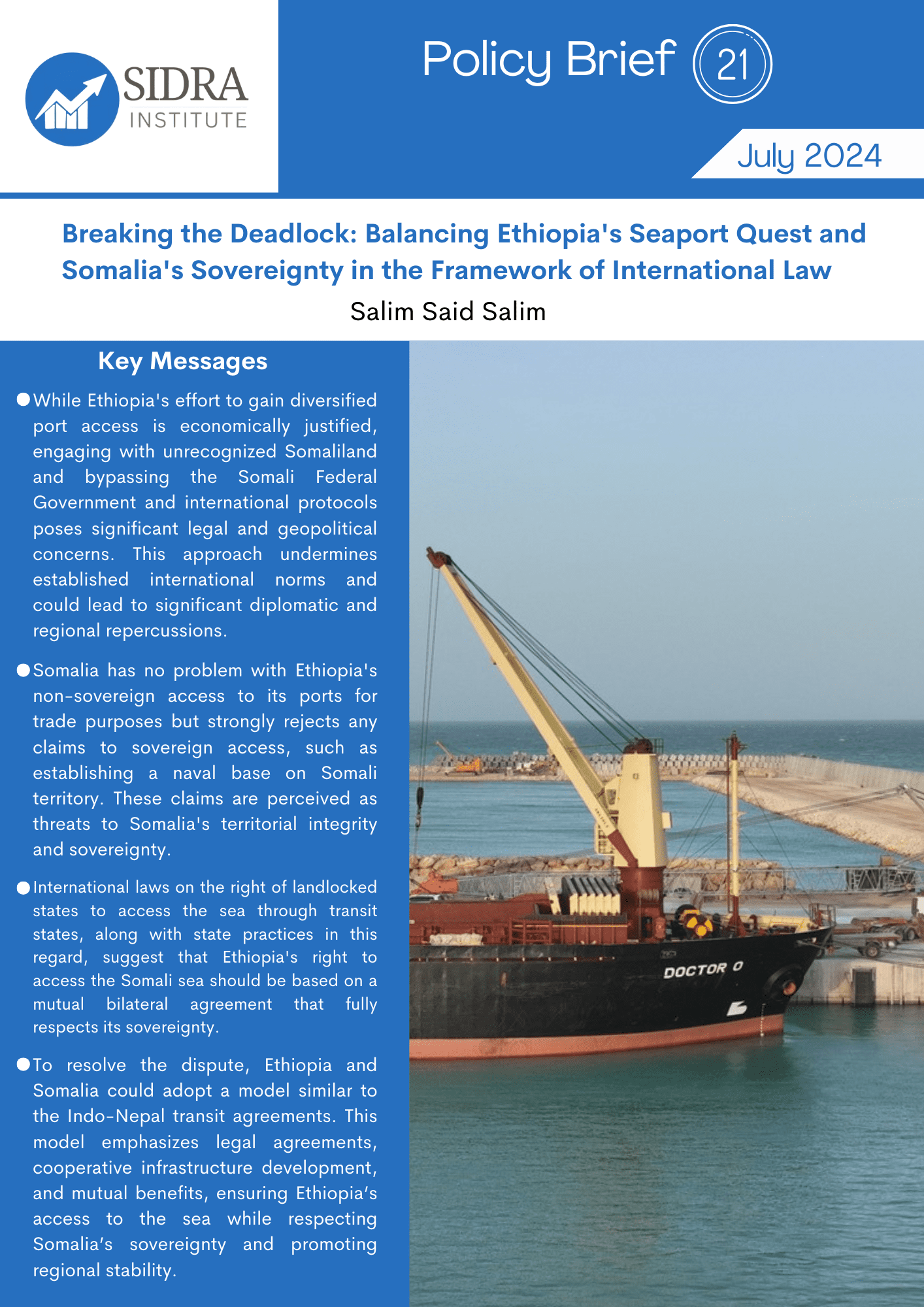Breaking the Deadlock: Balancing Ethiopia’s Seaport Quest and Somalia’s Sovereignty in the Framework of International Law.
15 €
Ethiopia, being landlocked, considers reliable and cost-effective seaport access crucial for its economic development. Studies reveal that landlocked countries tend to be 20% less developed than they would be if they had access to the sea, partly due to higher transportation costs ranging from 50 to 260% more than coastal countries. To achieve its development objectives, Ethiopia requires “export-oriented” industrialization and increased agricultural productivity (The Ethiopian Herald, 2024).
Historically, Ethiopia has relied on neighboring countries for sea access, especially since Eritrea’s secession in 1993, which cut off its primary maritime outlet. Ethiopia has since secured bilateral agreements, notably with Djibouti through the Djibouti Port Utilization Agreement. This agreement grants Ethiopia permanent rights to access the sea, use port facilities, and transit goods through Djibouti’s territory. Key provisions include exemptions from customs duties and the right for Ethiopian enterprises to operate in Djibouti’s duty-free zone. Disputes under this agreement can be settled through arbitration (Shchukina, 2024). This agreement exemplifies a successful bilateral approach that respects international norms and mutual sovereignty.
In addition to the Djibouti port, Ethiopian access options include Kenya’s Moyale dry port and Somal’s Berbera port, though these routes currently lack the necessary infrastructure to support bulk shipments. Ethiopia’s need for cost-effective port access has led to aggressive diversification initiatives, resulting in an increasing number of sea and dry ports utilized by the country (The Ethiopian Herald, 2024). These efforts highlight Ethiopia’s strategic goal to mitigate dependency on a single-entry point and enhance logistical resilience.
Related products
-
The Benefits and Burden of Chinese Foreign Direct Investment in East Africa
11 € -
A Call for Inclusive Entrepreneurship in Somalia
13 € -
Breaking the Impasse: Effective Electoral Model for Somalia Elections 2020-21
15 € -
Promoting Citizen Engagement Through Decentralized Local Governance: The Potential for Grassroots Democracy in Puntland
12 €
We are a pioneering research and consultancy firm dedicated to providing evidence-based solutions to clients across diverse sectors.
Coaching Service
Head Office Address
London Fashion Center 89/93 Fonthilll Road London N4 3JH
Days Open
Monday - Friday 08 AM - 10 PM
